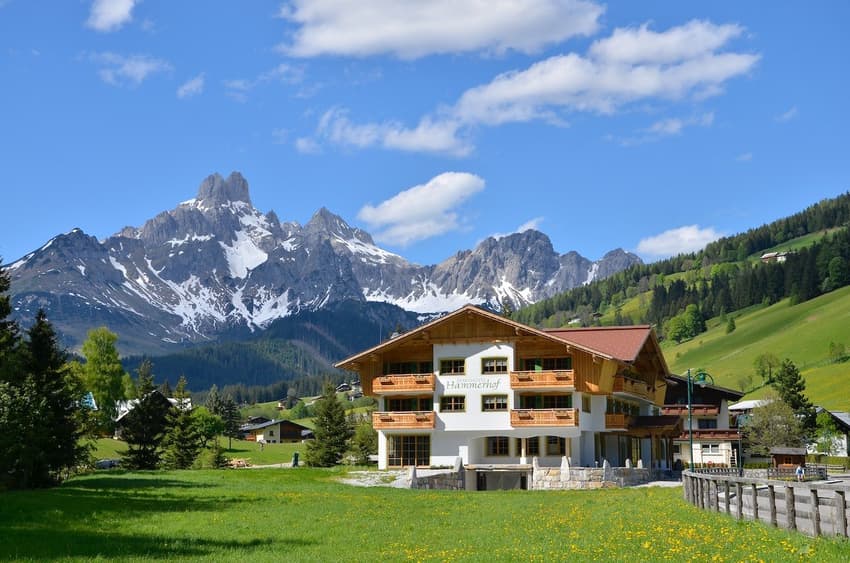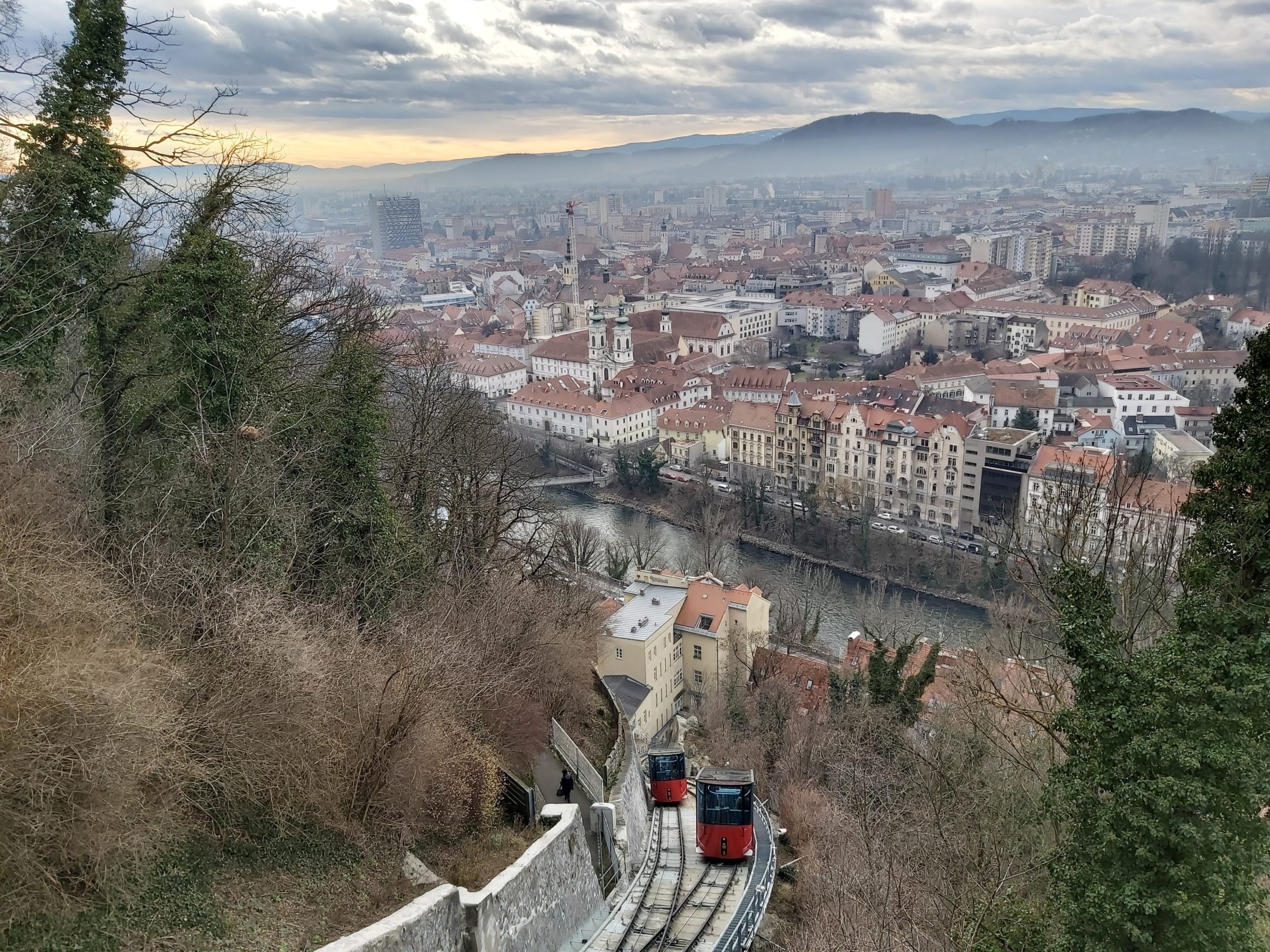Does Austria tax unoccupied homes?

Depending on where you live, you may have to pay an extra tax if you leave your Austrian home vacant.
Although property prices in Austria have fallen recently, thousands of apartments in places like Vienna remain empty, leading Austrian state officials to voice concern about whether vacant apartments are depressing housing supply and pushing up prices.
The capital has thus recently announced a second home tax to begin in 2025. The average fee will be between €300 and €500, depending on the home's size.
Although Lower Austria doesn't have such a tax, the Association of Municipalities there has recently advocated for introducing one.
Three other Austrian states have already passed such laws – Salzburg, Styria, and Tyrol – although each one is formulated a little differently. All of them have only recently come into effect, as of the beginning of 2023.
READ ALSO: Can foreigners buy a second home in Austria?
How much will I pay?
First of all, although all three laws were passed at the state level, they simply allow municipal taxes on vacant housing, set by local ordinances. That means that whether or not you have to pay a vacancy tax – and how much it is – is determined at a municipal level. So you’re going to need to check what the rate is in your specific community.
Styria’s Second Home and Vacancy Tax Act
Styria’s law applies to homes that are not registered as a main residence, or are registered as a second residence and used less than 26 weeks in a calendar year.
The maximum tax may not exceed €10 per square metre per calendar year. So a vacant apartment that’s 100 square metres in size could be subject to a vacancy tax of up to €1,000 per year.

Graz is still a place where foreigners can buy property without a lot of restriction, but there are taxes in place on vacant second homes to be aware of. (Photo by Daniela Turcanu on Unsplash)
Exceptions exist for families who buy an apartment specifically to pass onto their children in retirement, buildings of up to three apartments with landlords who have their main residence in the same building, apartments that can’t be used by their owners anymore due to health-related reasons, or diplomatic accommodation.
Apartments that are vacant for up to 26 weeks due to needed renovations or maintenance are also exempt.
READ ALSO: Can owners of second homes in Austria get residence permits?
Tyrol’s Leisure Residence and Vacancy Tax Act
Any residence that hasn’t been used as a main residence for at least six months technically falls under Tyrol’s legislation.
The tax is a lot more variable and can amount to anything from a mere €10 a month to €215 a month depending on where its located, and the home’s size.
Exceptions exist for buildings that aren’t fit for purpose, for buildings of up to two apartments if the owner has their main residence in one of the two apartments, buildings that are used for professional purposes (like a lawyer’s office), buildings that can’t be used by their current owners for health-related reasons, or reasons of ‘prompt personal need.’ If an owner still can’t rent out a vacant apartment but can prove they’ve attempted to do so for at least six months, they may also end up being exempt from the tax.
READ ALSO: Property buying rules for foreigners in Tyrol and Vorarlberg
Salzburg’s Vacancy and Second Home Taxes Act
Salzburg’s law applies to second homes that are vacant for more than 26 weeks a year, with an allowed tax amount that moves up a sliding scale.
Home of up to 40 square metres can be taxed at a maximum of €400 per year, or double that for new-builds.
Every extra 30 square metres on top of that increases the allowed tax amount by €300 per year or €600 for new-builds, up to a maximum of €2,500 per year or €5,000 for new-builds.
Any apartments that are less than five years old are considered new for the purpose of the Salzburg law.
Exceptions exist for homes that aren’t usable during the vacant period, ones that have a structural defect, can’t be rented out at the market rate, or are owned by the municipality or a non-profit body.
Property in Austria: Can I still buy a holiday home in Salzburg?
Comments
See Also
Although property prices in Austria have fallen recently, thousands of apartments in places like Vienna remain empty, leading Austrian state officials to voice concern about whether vacant apartments are depressing housing supply and pushing up prices.
The capital has thus recently announced a second home tax to begin in 2025. The average fee will be between €300 and €500, depending on the home's size.
Although Lower Austria doesn't have such a tax, the Association of Municipalities there has recently advocated for introducing one.
Three other Austrian states have already passed such laws – Salzburg, Styria, and Tyrol – although each one is formulated a little differently. All of them have only recently come into effect, as of the beginning of 2023.
READ ALSO: Can foreigners buy a second home in Austria?
How much will I pay?
First of all, although all three laws were passed at the state level, they simply allow municipal taxes on vacant housing, set by local ordinances. That means that whether or not you have to pay a vacancy tax – and how much it is – is determined at a municipal level. So you’re going to need to check what the rate is in your specific community.
Styria’s Second Home and Vacancy Tax Act
Styria’s law applies to homes that are not registered as a main residence, or are registered as a second residence and used less than 26 weeks in a calendar year.
The maximum tax may not exceed €10 per square metre per calendar year. So a vacant apartment that’s 100 square metres in size could be subject to a vacancy tax of up to €1,000 per year.

Exceptions exist for families who buy an apartment specifically to pass onto their children in retirement, buildings of up to three apartments with landlords who have their main residence in the same building, apartments that can’t be used by their owners anymore due to health-related reasons, or diplomatic accommodation.
Apartments that are vacant for up to 26 weeks due to needed renovations or maintenance are also exempt.
READ ALSO: Can owners of second homes in Austria get residence permits?
Tyrol’s Leisure Residence and Vacancy Tax Act
Any residence that hasn’t been used as a main residence for at least six months technically falls under Tyrol’s legislation.
The tax is a lot more variable and can amount to anything from a mere €10 a month to €215 a month depending on where its located, and the home’s size.
Exceptions exist for buildings that aren’t fit for purpose, for buildings of up to two apartments if the owner has their main residence in one of the two apartments, buildings that are used for professional purposes (like a lawyer’s office), buildings that can’t be used by their current owners for health-related reasons, or reasons of ‘prompt personal need.’ If an owner still can’t rent out a vacant apartment but can prove they’ve attempted to do so for at least six months, they may also end up being exempt from the tax.
READ ALSO: Property buying rules for foreigners in Tyrol and Vorarlberg
Salzburg’s Vacancy and Second Home Taxes Act
Salzburg’s law applies to second homes that are vacant for more than 26 weeks a year, with an allowed tax amount that moves up a sliding scale.
Home of up to 40 square metres can be taxed at a maximum of €400 per year, or double that for new-builds.
Every extra 30 square metres on top of that increases the allowed tax amount by €300 per year or €600 for new-builds, up to a maximum of €2,500 per year or €5,000 for new-builds.
Any apartments that are less than five years old are considered new for the purpose of the Salzburg law.
Exceptions exist for homes that aren’t usable during the vacant period, ones that have a structural defect, can’t be rented out at the market rate, or are owned by the municipality or a non-profit body.
Property in Austria: Can I still buy a holiday home in Salzburg?
Join the conversation in our comments section below. Share your own views and experience and if you have a question or suggestion for our journalists then email us at [email protected].
Please keep comments civil, constructive and on topic – and make sure to read our terms of use before getting involved.
Please log in here to leave a comment.